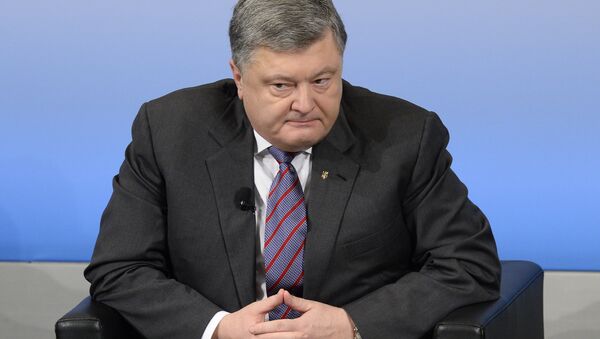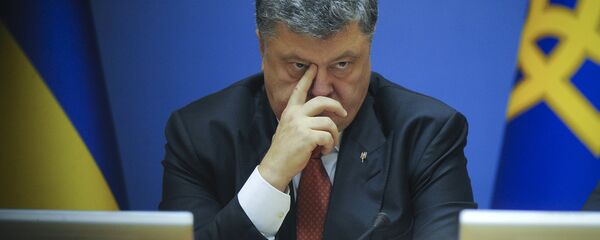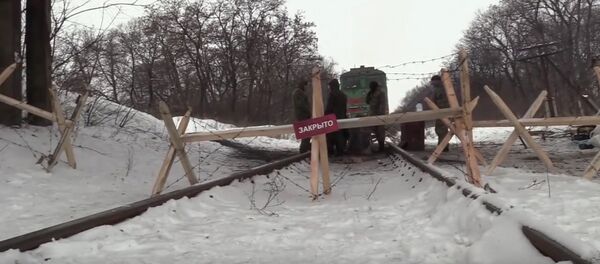One shouldn't expect Ukrainian President Petro Poroshenko to fulfill the Minsk agreements, since it will inevitably lead to his ouster, political analyst Alexander Dudchak told Radio Sputnik.
"It's no good waiting for the present Ukrainian administration implementing the Minsk agreements, because their fulfillment will automatically lead to Poroshenko's resignation," Dudchak assumed.
The political analyst recalled that Poroshenko has repeatedly postponed the implementation of the accords. However, according to Dudchak, it can't go on indefinitely.
"Apparently, [the country's] internal forces will increase the pressure on him and 2017 will bring great changes to Ukraine," the analyst remarked.
The breakaway republics of Donetsk and Lugansk have nationalized major Ukrainian-administered enterprises in the Donbass region.
Earlier this week, the self-proclaimed Donetsk and Lugansk People's Republics warned the Ukrainian government that they would stop delivering coal to Ukraine and take the Ukrainian enterprises operating in the breakaway territories under their control.
However, the Ukrainian radicals refused to lift the blockade and threatened to "expand its geography."
In mid-February Poroshenko openly condemned the blockade imposed on Donbass in late December 2016, saying it could lead to the loss of up to $2 billion for Ukraine in foreign currency earnings.
"Due to the blocking of… coal deliveries a threat appeared that Sumy, Kramatorsk, the left bank of Kiev and many other cities can remain without heating. Ukrainian metallurgy, if the blockade is not stopped… could lose up to 300,000 jobs," Poroshenko highlighted.
Commenting on the matter, Kremlin spokesman Dmitry Peskov said on February 27 that Kiev's inability or, purportedly, unwillingness to lift the blockade left Moscow puzzled.
"The only thing I can say in this case is that Moscow has repeatedly said… that the transport blockade, which takes place these days… seriously destabilizes the situation, hinders the settlement process, prevents de-escalation of the situation, especially on the contact line in Donbass. Ultimately, it further distances us from being able to approach the implementation of the Minsk agreements," Peskov stressed.
According to Dudchak, Kiev is interested in the ongoing blockade.
"Of course, there are those who are interested in continuing this blockade because the slump in deliveries of coal from Donbass will allow them to redirect the cash flows to other sources of fuel for power plants," Dudchak said.
Meanwhile, the Donetsk People's Republic decided to "strike back" and declared a trade blockade on Kiev.
"We are cutting all ties with Ukraine, with which we are at war. Yes, we were selling coal to get money and pay wages here. But due to the fact that we have learned to live in the blockade, we are declaring a blockade on Ukraine," the leader of the Donetsk People's Republic (DPR), Alexander Zakharchenko, said on March 3.
According to Dudchak, it was unwise on Kiev's part to deepen the rift between Ukraine and the breakaway republics instead of de-escalating tensions.
"The Donbass blockade accelerates the alienation of the self-proclaimed republics from Kiev; it works as a kind of catalyst for many processes that now take place in Ukraine," Dudchak stressed.




